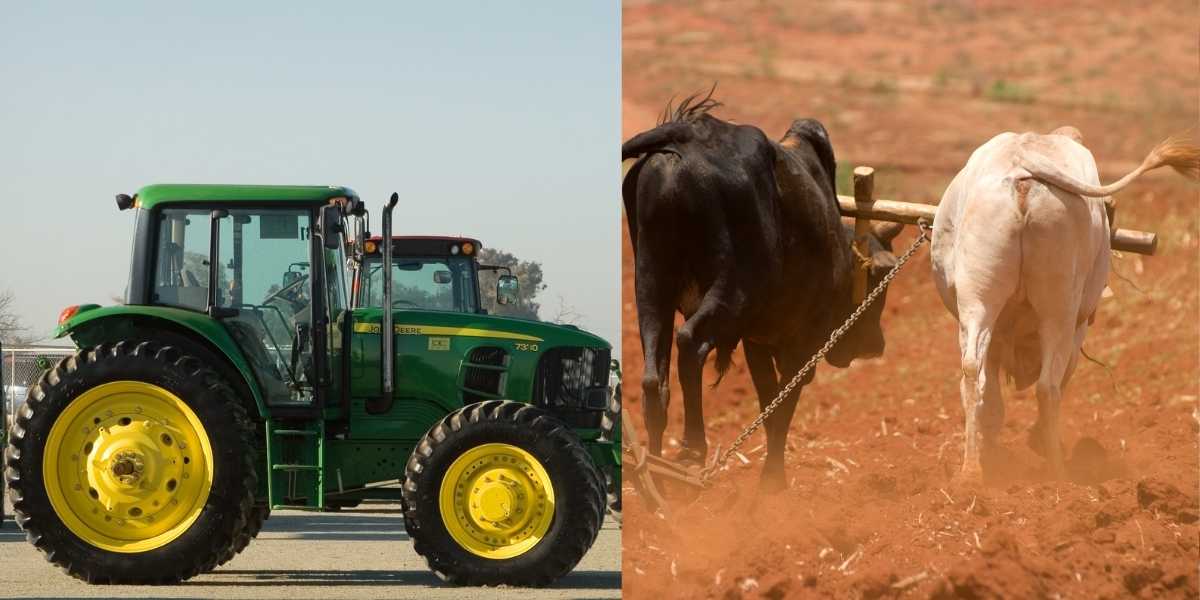THE KING JAMES VERSION ONLYIST SAYS OF THE MODERN TRANSLATIONS
"I'LL PASS. I'LL KEEP MY KJV"
RESPONSE TO THE KJVOIST
That's like the farmer who said of the new John Deere tractor, "No, that's ok. I will keep my ox and plow."
THE KJV HAS
(1) One thousand different words that do not mean today what they meant in 1611. The word "let" which means "to allow" or "to permit" today meant "to stop" or "to restrain" in 1611. When the KJV says that the apostle Paul 'let the great apostasy into the church,' it actually meant that he stopped it.
(2) Archaic language (See below)
(3) corrupt readings that were not in the original: individual words to phrases, to sentences, and even up to 12 whole versus.
Actual Terms Found In The KJV Bible
Beeves (Lev. 22:19) armholes (Jer. 38:12) and emerods (Deut. 28:27) canker (2 Tim. 2:17) the bald locust (Lev. 11:22) before horseleach (Prov. 30:15) broilered (Ex. 28:4) the calves of our lips (Hos. 14:2) and cast the same in his teeth (Mt. 27:44) burning ague (Lev. 26:16) and chalkstones (Isa. 27:9)! Besom (Isa. 14:23) liers (Josh. 8:14) girt (2 Kings 1:8) the hasty fruit (Isa. 28:4) while lapwing (Lev. 11:19) helve (Deut. 19:5) the hindmost (Num. 2:31) apothecary (Ex. 30:25). The ambushment (2 Chron. 13:13) cauls (Isa. 3:18) chapiter (1 Kings 7:16) from ambassage (Lk. 14:32) and his flesh pots (Ex. 16:3) freckled spot (Lev. 13:39) the mallows (Job 30:4). Then nergal (2 Kings 17:3 mufflers (Isa. 3:19) astonied (Ezra 9:4) the farthing (Mt. 5:26) flagons (Isa. 22:24) mincing (Isa. 3:16) mete (Ex. 16:18), maw (Deut. 18:3) and assupim (1 Chron. 26:15). Afterwards the college (2 Kings 22:14) oil tree (Isa. 41:19) was neesings (Job 41:18), plaiting (1 Pet. 3:3) pleasant plants (Isa. 17:1 and rereward (Number 10:25) ribband (Num. 15:38).
Moreover, the portray (Ezek. 4:1) bloody flux (Acts 28:8) botch (Deut. 28:27) his ossifrage (Lev. 11:13) while the pommels (2 Chron. 4:12) pygarg (Deut. 14:5) his victual (Ex. 12:39). Waxed rich (Rev. 18:3) caused a tender eyed (Gen. 29:17) unicorn (Numbers 23:22) to spikenard (Mark 14:3) the sabaoth (Rom. 9:29) the same time a cankerworm (Joel 1:4) cheek teeth (Joel 1:6) the exactors (Isa. 60:17). But that’s not all! The crisping pins (Isa. 3:22) fell out of the chamois (Dt. 14:5) fray (Jer. 7:33) engines (Ezek. 26:9) and succour (Heb. 2:18) the malefactor (John 18:3 into the lily work (1 Kings 7:19)!
For those who think this is but succothbenoth (2 Kings 17:3, vain janglings (1 Tim. 1:6) and superfluity of naughtiness (James 1:21), winefat (Isa. 63:2) and wist (Joshua 8:14) will unstopped (Isa. 35:5). Trow (Luke 17:9) the wreathen (Ex. 28:14) and gay clothing (James 2:3) over the clift (Ex. 33:32) and churl (Isa. 32:5) the checker work (1 Kings 7:17) down the firepans (2 Kings 25:15) and on hungerbitten (Job 18:12) hoar frost (Ex. 16:14). The latchet (Mark 1:7) to the lowering (Mt. 16:3) has occurrent (1 Kings 5:4) and even munition (Isa. 29:7). The mortar (Num. 11:8) pavement (Esther 1:6) is below the almug (1 Kings 10:12) and pressfat (Hag. 2:16) the sheaf (Gen. 37:7). Understandeth what thou readeth?
CATEGORY: KING JAMES VERSION VERSUS MODERN TRANSLATIONS
https://christianpublishinghou....se.co/category/bible
YES, by all means, keep the understanding of translators of 450 years ago instead of having what we have learned about Hebrew and Greek over the past 450 years. And keep that corrupt 16th-century Greek NT text that they used for the NT that dated 1,200 years after Christ, as opposed to the thousands of manuscripts that we have discovered since many of which date within decades of the original. That is what free will is all about.





